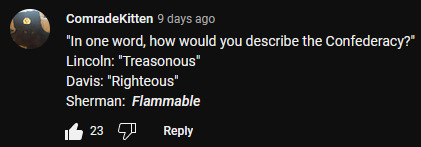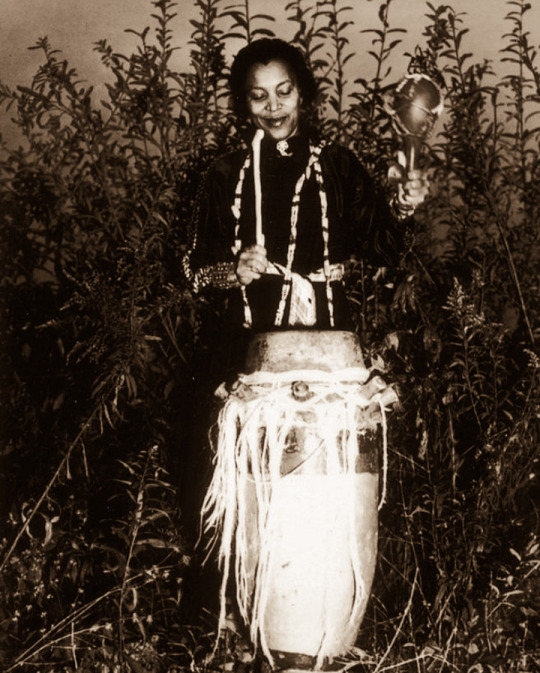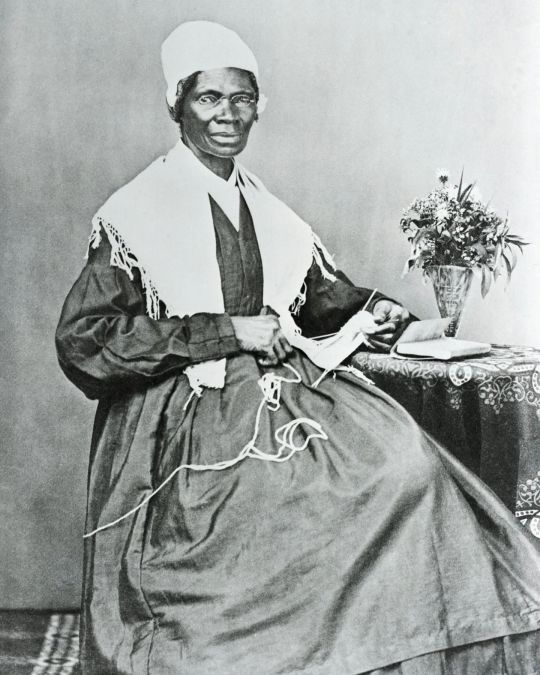#40 acres and a mule
Text
We’ll take the 40 acres, you can keep the mule.
#politics#black history#tiktok#blacklivesmatter#proud family#40 acres and a mule#black history month#reparations#slavery#the proud family#bhm#racism#structural racism#systemic racism#white supremacy
322 notes
·
View notes
Text

New Jersey Drive
18 notes
·
View notes
Video
youtube
Jordan Spizike Low
0 notes
Text
This order serves as a good point to how artificial historical periodization is:
I consider Sherman's 40 Acres and a Mule order something that illustrates the follies of historical periodization, on the one hand, and something that also lays out the blunt truths of the 1870s as far as American history and culture go. The US of that time decided, in the end, to distribute massive amounts of conquered land from Indigenous peoples to white settlers. It correspondingly refused to transfer land of defeated planters to the Black people who'd actually worked it, which would have established a much greater basis for a movement away from the cotton economy that survived largely intact in the postwar South.
The reality of the order, and the expectations it raised, fit into both the War and Reconstruction, while showing that the lines between these are purely arbitrary retroactive designations.
#lightdancer comments on history#black history month#us history#military history#40 acres and a mule#historical periodization is for historians and historiography#real events do not neatly fit arbitrary designations and this is why they can sometimes fall in memory holes
1 note
·
View note
Text







#ai art#ai#wonder ai#digital art#colorful#digital#ethereal#graphic design#ai artist#black#reparations#40 acres and a mule#built this country on the backs of ancestors#blood and sweat#independence day#america
1 note
·
View note
Text
Capitalism Oversimplified
“ She sells seashells on a seashore
But the value of these shells will fall
Due to the laws of supply and demand
No one wants to buy shells 'cause there's loads on the sand.
Step one, you must create a sense of scarcity
Shells will sell much better if the people think they're rare, you see
Bare with me, take as many shells as you can find and hide 'em
On an island stockpile 'em high until they're rarer than a diamond
Step two, you gotta make the people think that they want 'em
Really want 'em, really fuckin want 'em
Hit 'em like Bronson
Influencers, product placement, featured prime time entertainment
If you haven't got a shell then you're just a fucking wasteman.
Three, it's monopoly, invest inside some property
Start a corporation, make a logo, do it properly
"Shells must sell", that will be your new philosophy
Swallow all your morals, they're a poor man's qualityFour, expand, expand, expand
Clear forest, make land, fresh blood on hand.
Five, why just shells?
Why limit your self? She sells seashells, sell oil as well!
Six, guns, sell stocks, sell diamonds
Sell rocks, sell water to a fish, sell the time to a clock.
Seven, press on the gas, take your foot off the brakes
Run to be the president of the United States
Eight, big smile mate, big wave that's great
Now the truth is overrated, tell lies out the gate
Nine, polarize the people, controversy is the game
It don't matter if they hate you if they all say your name.
Ten, the world is yours
Step out on a stage to a round of applause
You're a liar, a cheat, a devil, a whore
And you sell seashells on the seashore “ - Money Game Pt 2 | REN
0 notes
Text
Anytime someone says that in the utopic future we'll get all/most of our produce from our literal front yard I get very very skeptical.
#My mom grew up like that due to not enough money and they were so malnourished that my mom grew two inches AFTER college.#And my granny worked hard on those gardens and canning. Harder then I am ever going to work at such things.#40 acres and a mule was a lie but even if it wasn't I think 40 acres would have been just enough land for a family to barely barely make it#and like... that is not the way the future lies.#Homesteading was to further colonization and it was still fucking hard and people frequently failed.#personal
0 notes
Text
Putting Wesley's Theory on Joanelle's playlist because it's funny
#Hero of kvatch#Tesblr#Emmeg's Theory#What you want you a house or a car 40 acres and a mule a piano a guitar anything see my name is Uncle Sam I'm your dog#Motherfucker you can live at the mall#I know your kind (that's why I'm kind)#Don't have a receipts? (Aw man that's fine)#Pay me later
1 note
·
View note
Text

Fucking love this comment
#Sherman was a shitty dude for what he did after the civil war#also for screwing over slaves after that 40 acres and a mule promise#BUT#Burning Atlanta the fuck down#and raiding and robbing the Confederacy and tearing them a new asshole#was fucking righteous
1 note
·
View note
Text


Clockers
8 notes
·
View notes
Text

Today In History
Shelton Jackson “Spike” Lee, Oscar winning filmmaker was born in Atlanta, GA, on this date March 20, 1957.
His production company, 40 Acres and a Mule Filmworks, has produced more than 35 films since 1983, and they include: She’s Gotta Have It, School Daze, Do the Right Thing, Mo’ Better Blues, Jungle Fever, Malcolm X, Crooklyn, Clockers, Girl 6, Get on the Bus, He Got Game, Summer of Sam, Bamboozled, 25th Hour, She Hate Me, Inside Man, Miracle at St. Anna, Red Hook Summer, Da Sweet Blood of Jesus, Old Boy, Chi-Raq, BlacKkKlansman, and Da 5 Bloods.
Lee’s outstanding feature documentary work includes the double Emmy® Award-winning If God Is Willing and Da Creek Don’t Rise, a follow up to his HBO documentary film When the Levees Broke: A Requiem in Four Acts, 4 Little Girls, Michael Jackson’s Journey from Motown to Off the Wall, and the Peabody Award-winning A Huey P Newton Story.
He is also known for his legendary Air Jordan TV commercials and marketing campaigns with Michael Jordan for Nike. In 1997 he launched the advertising agency Spike DDB, a fully integrated agency with a focus on trendsetter, cross-cultural and millennial audiences.
In addition to his films, TV series and commercials, Spike Lee has Directed a number of music videos and shorts for artists such as Michael Jackson, Prince, Public Enemy, Branford Marsalis, Bruce Hornsby, Miles Davis and Anita Baker.
YA’ DIG, SHO NUFF.
CARTER™️ Magazine
#spike lee#carter magazine#historyandhiphop365#wherehistoryandhiphopmeet#history#carter#cartermagazine#today in history#staywoke#blackhistory#blackhistorymonth
121 notes
·
View notes
Text
On January 7th, we venerate Ancestor & Hoodoo Saint, Auntie Zora Neale Hurston on her 133rd birthday (updated 2024). 🎉

Novelist, Anthropologist, Folklorist, Scholar, Vodou initiate & Historian, Zora Neale Hurston's legacy is forever cemented in Hoodoo Culture (and beyond) as the masterful wordsmith who cast a shining light on black excellence in all everyday forms/spaces, our ATR roots, & the preservation of Black Voices during the prime of the Harlem Renaissance.
Auntie Zora was born in Notasulga, AL and raised on 5 acres of land in Eatonville, FL by her preacher-father and free-spirited mother ; in what would be the first all-Black township in the country. After the shattering loss of her mother, Zora turned up in Baltimore, MD where she presented herself as a 16 year old (10 years her junior) in order to access free public school education resources; thereby finishing school. From then on, Zora lived her life presenting herself as 10 years younger than she actually was. She'd go on to graduate from Barnard College in 1928.
She published several novellas & articles, including "Mules & Men"; a collection of Hoodoo Folklore. She entered the zenith of her career in the late 30s/40s after publishing her masterworks: "Their Eyes Were Watching God", "Tell My Horse", "Moses, Man of the Mountain", & an anthropological study on Hatian Vodou .After publishing her autobiography, "Dust Tracks on a Road, "Auntie Zora finally received the public recognition & literary respect that was long overdue. Despite her successes, and unprecedented contributions in classic literature & anthropology, Zora never received the financial contributions that her work so deserved.
Zora Neale Hurston passed away; penniless, alone, & drifting into obscurity. Friends and supporters from near and far raised $600 for her funeral service and burial. She was buried in an unmarked grave, in a segregated section, at the Garden Of Heavenly Peace Cemetery in Fort Pierce, FL. Over a decade later, in 1973 the Great Alice Walker found the unmarked grave and ordered a headstone to be placed on it; engraved with, "Genius Of The South" in Zora's honor. It remains in place today.
“Let no Negro celebrity, no matter what financial condition they might be in at death, lie in inconspicuous forgetfulness. We must assume the responsibility of their graves being known and honored.” - Zora Neale Hurston to W.E.B. Dubois
Auntie Zora wanted to be remembered & demanded that the same honor and respect be given unto her peers & others. Never forget the infectious voice that defined & defied, inspired & struck fear in many hearts of her time & after.
We pour libations & give 💐 today as we celebrate Auntie Zora for her enigmatic spirit, ancestral wisdom, labor of love for Hoodoo Folklore, & for the seeing the beauty in the dark, sometimes solemn, corners in Black Culture. Let her studies continue to inform our own. Let her spark a fire in us to reconnect to our roots & grow within our lineages.
Offering suggestions: money, music, read/share her work, libations of water, & flowers.
‼️Note: offering suggestions are just that & strictly for veneration purposes only. Never attempt to conjure up any spirit or entity without proper divination/Mediumship counsel.‼️
#hoodoo Saints#Hoodoo Saint#zora neale hurston#Hoodoo#vodou#haitian vodou#the hoodoo calendar#hoodoohistory#hoodoos#atrs#atr#hoodoo culture#bvm#Hoodoo Folklore#Black authors#Black writers#own voices#Black Power
692 notes
·
View notes
Photo

On this day, 26 November 1883, the formerly enslaved woman and pioneering feminist, Black emancipationist and poet Sojourner Truth died in Michigan aged 86. She was born into slavery in a Dutch-speaking community in New York, and later gave birth to five children. She escaped in 1827, and with the support of an abolitionist family, successfully sued for the return of one of her sons who had been illegally sold in Alabama. After moving to New York City she became a charismatic preacher, helping enslaved people escape and advocating for abolitionism, and for women's rights, including women's suffrage. During the civil war Truth assisted the Union side, and after the war she helped people formerly enslaved in the South build new lives, often as wage workers. Truth remained active until the end of her long life, spending time in her later years campaigning for land redistribution to formally enslaved people – which was famously promised as "40 acres and a mule", but was never delivered. https://www.facebook.com/workingclasshistory/photos/a.1819457841572691/2145166525668486/?type=3
386 notes
·
View notes
Video
Black Farmers
the 1619 podcast has a great episode about Black Farmers
https://www.nytimes.com/2019/10/04/podcasts/1619-slavery-sugar-farm-land.html?
In the fall of 1864 at the height of the Civil War, one of the most famous Union generals, William Tecumseh Sherman, begins his march out of the city of Atlanta to the sea.
And as Sherman and his men make their way through Georgia, black Southerners are seeing an opportunity.
And so by the thousands, they start to leave the plantations where they’ve been enslaved and are falling behind Sherman’s troops as they make their way to the coast.
But these newly liberated people were not exactly welcomed. Sherman didn’t actually oppose slavery, and so he’s really not that sympathetic to those who are fleeing these plantations, and he also sees them as a drain on his resources. They are families. They are people of all ages, young and old, who need food and care, and they are slowing the troops down.
By December of that year, some of Sherman’s troops are about to approach Savannah, and they come upon a creek that is both too wide and too deep to cross without a bridge. So the troops start building one, and they instruct the black people who are following them to just wait, that the troops need to cross first, but then they’ll be able to come after. But the Confederate Army is on their heels, and once the Union troops cross, they break up the bridge, leaving all those people who had just escaped slavery behind to face either the icy waters or the rebel army that was in pursuit.
It is a massacre. Some of them drown trying to swim across. Others are trampled or shot to death, and those who remain are captured and re-enslaved. When word gets back to Lincoln’s secretary of war, Edwin Stanton, he is outraged. He has Sherman pull together a meeting with 20 black church leaders. There’s a transcript of this meeting, and it shows that these two men, Stanton and Sherman, actually turned to this group of black leaders and asked them, what do you want for your own people?
Speaking for the group, one of the men tells them, “The way we can best take care of ourselves is to have land, and turn it and till it by our own labor — that is, by the labor of the women and children and old men, and we can soon maintain ourselves and have something to spare.”
And what’s remarkable is that Sherman turns that request of those men for land to work for themselves into a government order, Special Order No. 15. It said that the government would take 400,000 acres that it had seized from the Confederacy and split it up among those thousands of newly emancipated people. This becomes what is perhaps the most famous provision of the Reconstruction period, which we all know as 40 acres and a mule. President Lincoln approves the order, but soon after, he’s assassinated. And Andrew Johnson, a Southerner who had once enslaved people himself, takes over the presidency and quickly overturns it. And within a few short months, the small amount of land that had been distributed to black people was returned to white Southerners.
#tiktok#farmers#black farmers#podcast#farming#history#USDA#civil rights#reagan was a terrible president#us history
135 notes
·
View notes
Text
You know, I talk about my family Cabin on here a lot, but I don't think I've ever actually explained what the Cabin IS. So. Story time. We haven't had a story time in awhile.
This story starts sometime in the early 1900s with my great grandfather losing half his right hand in some sort of logging/mill/mining accident. The stories vary depending who in the family you ask. (He also ran mule trains over the mountains at some point.) But however he lost it, he ended up in the local hotel (which was a facade building, I believe, so just a glorified tent) because there was no hospital. There was also no doctor. Somehow somebody tracked down a nurse somewhere and brought her to the hotel.
BUT!
It was improper for this young woman to be alone with a man, even if she was trying to make him not be dead. The scandal!!!
So that nurse became my great-grandmother. No idea what their actual wedding was like, but I imagine it was rather interesting given they'd only known one another two days and he was still half delirious because of major injury.
Now we'll skip forward a bit. They decide to buy a few acres over in Middle Park/Grand County, and they're gonna start a little ranch up there. They pay some dude for the land and pack up the wagon (yes, wagon, the Colorado mountains didn't get the message that the century had changed until about 30-40 years after it happened). But then they arrived and, on no, they've been lied to! No land is waiting! They managed to get themselves a few acres anyway and went about starting their ranch and having 10+ children, all but one of whom lived to adulthood which was damn impressive. (Also worthwhile to note here that, until sometime in the 1950s, there was only one doctor in the whole county and she was a grumpy old lady who didn't believe in pain meds.)
Their youngest daughter died at 4, I believe from whooping cough, and less than a week later my great-grandfather came in from the fields, said he wasn't feeling well, laid down, and died. So now here's my great-grandmother in the middle of the Rockies in the 1920s with 10+ kids, some of them still under 10. And let me tell you, she kicked ass.
But what does all of this have to do with the Cabin you say? Well, see, those 10+ kids spread out all over the county, buying their own lands and marrying into the other families up there. Then along came the state saying "hey, we want to build a reservoir where your house is, get out." To which my great-grandmother said "fuck you." She said fuck you enough times that the family eventually ended up with 1000+ acres in exchange for moving off their little plot. They literally just picked up the house and moved it about 1/4 mile up the hill, and that original house is still there today.
Now, ever since then the family has sold off some of the land, but we still have a lot of it. The family cattle ranch is still operational as well, now run by one of my second cousins. A couple of my great-uncles also built houses on various parts of the property over the years, which is how we get to the Cabin.
My grandfather, the youngest living child of his parents, eventually moved down to Denver. But he still loved his home in the mountains, and wanted his 10 kids to experience that as well. One of the houses on the family property had fallen into disuse, to the point cows were living in it and having a grand old time. My grandfather decided to fix it up so that he and his kids could have a place to go up there. This was the first Cabin, referred to as Camp Grub. Until his sister-in-law, who technically owned the house with his brother, realized he'd fixed the house and went "oh, how nice of you! Get out, it's mine now."
Thus, the second Cabin came into being. Not wanting to give up on having a place up there, my grandfather found another cabin a few miles away and rented that. It was called the White House because it was. Well. White. This is where my dad and his 9 siblings grew up going all the time. Lots of fond memories of hunting, fishing, and general shenanigans. But then, early in the 90s, the owner of the property didn't renew my grandparent's lease.
This time, my grandparents wanted to get something they OWNED and couldn't be taken from them. They settled on the Cabin, which was again several miles away in a different spot. This third Cabin is the one we still have today, the little A-frame. It was named Moose Camp.
None of his children wanted him to buy an A-frame. Because A-frames are terrible. It could only sleep six people and, at this point, there were a good 20+ family members that wanted to use it. But my grandfather did not care. So we ended up with an A-frame that sits on 60ish acres and, at the time, was on the only tiny little flat spot of the entire 60ish acres.
My dad and his siblings, mostly in their 20s and early 30s at the time, took one look at this and decided nope. Must fix. So they promptly set about hand-digging a basement to add four more bedrooms, and they dug out a huge chunk of the hillside to create a flat spot for the garage and parking. Half the garage is a garage, the other half (separated by a wall) is an outdoor livingroom/dining area. There has been some other odds and ends projects done over the years such as cutting a couple RV parking spots out of the woods, but nothing else major.
Now, this is the Cabin I grew up in and the one we still have. I have spent nearly 30 years of my life going up there almost every weekend. After my parents divorced they started moving at least once a year each so from a very young age I never had a stable home except for the Cabin.
The whole family used it, and you never knew who was coming. It could be just a few people, or twenty. Sometimes people brought friends. Sometimes distant cousins showed up. My cousins and I had the run of the place, and the whole 60 acres. It was a grand old time, and I wouldn't trade it for the world. We all learned to shoot, to hunt, to be safe in the woods. We heard all the family stories, and visited the family that still lived up there. There were always at least two fridges full of food and it was just sort of a free for all of who ate what, didn't really matter who brought it. There were campfires out behind the garage. There were lazy days in the gazebo my dad and his siblings built for their mother from scrap wood.
After my grandparents died, the Cabin was put into a trust so that now all of their kids have an equal share in it. (Except for one, who we do not speak of, because she is not welcome in the family anymore, and another who has died.) Over the years, most of the family has used it less and less. My dad and I are now the ones who use it the most, and do most of the upkeep. I've got an uncle and an aunt (my dad's brother and sister) who come up a fair amount as well, but the uncle is getting a bit too old to really help out with the heavy projects and the aunt...well...she tries.
Other family does still come up, though. Some a handful of times every year, others only once a year or so. They usually find something to complain about (specifically one aunt who is a very my-way-or-the-highway person) or some project they think needs done, and they'll moan about it not getting taken care of, but never do anything about it. They leave and my dad and I continue to tinker with the plumbing, cut firewood for everyone else to use, clean out the fridges, restain the siding, fix the basement when it floods in the spring, plow the road, and everything else that needs done, never really bringing up the fact that we're the only real caretakers left of the place. If the rest of the family does manage to decide to do some sort of project my dad and I usually end up putting it back in order once they're gone, and they never notice.
We still visit the surrounding family, we still hunt, we still explore. But it's quieter now. It'll always be home, though. The only real home I've ever had. According to the rules of the trust, the property has to stay in the Wood family unless every member of the trust agrees to sell, which they'll never do. So it'll be there, in some form, for quite awhile.
(Putting the words Long Post in here so the tumblr filters can hide it even if other people don't tag it as such.)
168 notes
·
View notes
